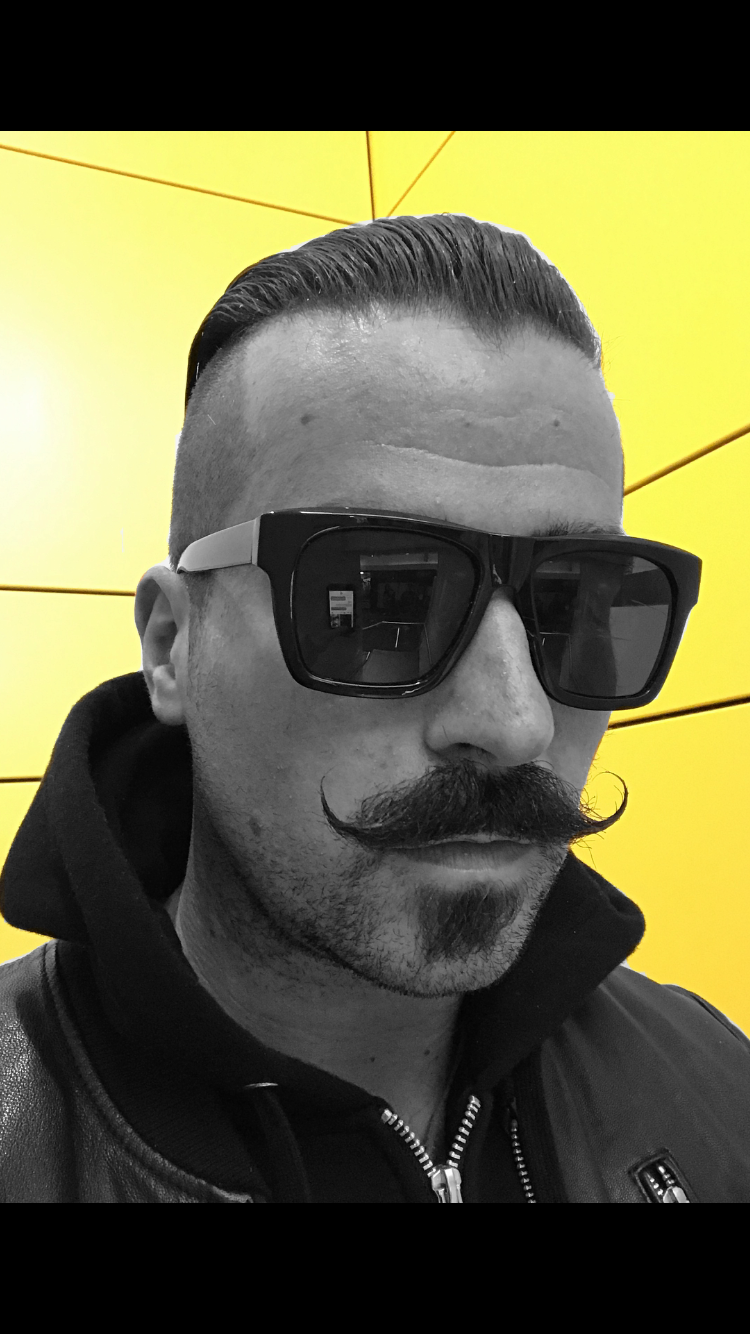
By Claire Bueno
When you embark on a career in the entertainment industry it is always a gamble, there is always risk. Composer and Scars on 45 keyboard / pianist, David Nowakowski took a chance on himself and the gamble paid off. His tenacity has earned him a successful career in music and his latest song The Gambler is the title track for season 4 of Kay Mellor’s The Syndicate. I was on to a winner when the Bradford born musician was kind enough to sit with me (virtually of course) and share some of his insights composing for film, commercials and of course theme tunes.
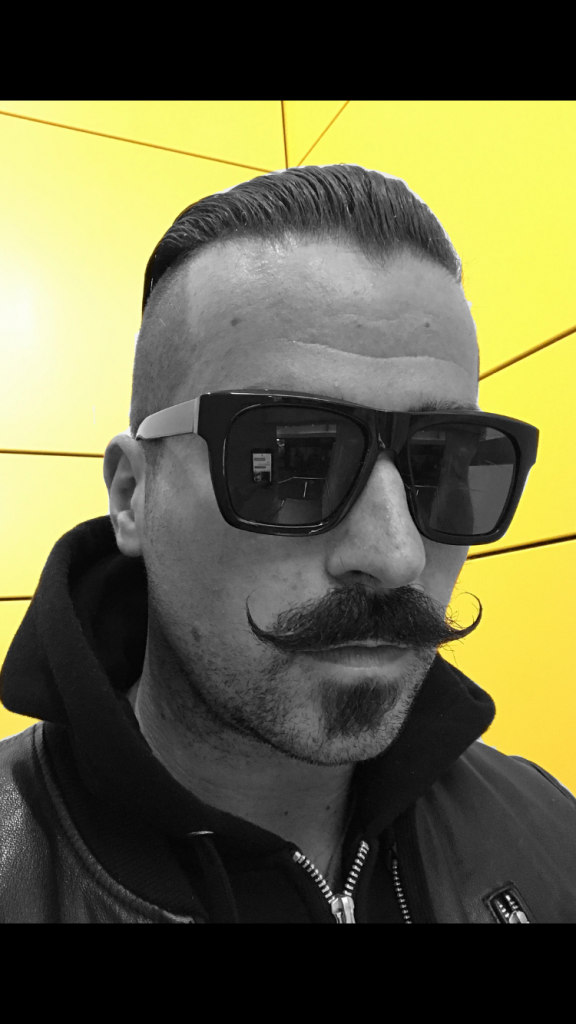
So David I have to congratulate you because your theme song ‘The Gambler’ is the theme tune for season 4 of The Syndicate, you must be so excited to be a part of such a prestigious programme?
I mean it’s incredible Claire. I think even working with the renowned Kay Mellor is such a privilege. Her shows, her background of shows is premier league isn’t it? You’re going all the way back to the early 90s when she did Children’s Ward, do you remember on CITV, Band of Gold, Fat Friends and even the actors who have been in the shows, I mean she worked with Jude Law didn’t she? James Cordon, look where he is. So it’s like all these actors who have been in the shows, who have had really great successful careers as well. So being a musician and composer and being part of her show this year, yeah; it still hasn’t really sunk in to be honest, if I’m honest.
So how did it happen? Did Kay come to you with, “I got this idea and I’d like you to compose the theme?” Or was it that the song already existed, she liked it and was like, “Can I use this in my show?”
Erm, well long story short, on the first and second season my band Scars on 45 we did a theme song, and me a typical Yorkshire guy I’ve kept in touch with Rollem Productions and Yvonne, her daughter as well and just really kept that relationship going. I think it’s so important within the industry, you’ve got to keep building relationships up throughout. And then obviously this season came round and I’ve been sending music nonstop to Kay and Rollem just in case anything else came up, and then yeah it was one of them things where it was one, two, three songs were in the first season, second season without even mentioning the theme song. And then it was the editor Lindsey Massey, she reached out and said, “Have you got anything for a theme song?” And I sent a couple of tracks and they were absolutely terrible, (laughs), they were terrible, I’m embarrassed, I’m surprised they asked me to carry on. I don’t know what they were about, I don’t know what I was thinking. And then Kay just kinda said, “Listen I need a song that has theme of a gambler, a dog, money and...” something, I can’t remember what the other theme was. And I was like, ‘what am I going to do? What am I going to do?’ And straight away The Gambler, Kenny Rogers, it’s a classic, it’s a classic! Yeah! So I reached back out to Kay and the team and said, “What do you think of this?” They went, ‘Listen go and do a version of it, but you’ve got 48 hours, we need it now.” ‘cos they were in post-production. And was like, “What 48 hours!” So at the time I was doing a co-write with another Bradford lad call Sam Harrison. He’s a musician, in a band called Rising Fever and were writing at the time back and forth from Denver to Yorkshire and I said, “Dood I need a favour, forget about this song I’m writing at the minute, do you know The Gambler, Kenny Rogers?” He
goes, “Do I know it?!! I know it inside out!” So anyway, I was thinking ‘please do a good job, please do a good job.’ And he literally got back within 24 hours, this is during time zones, back and forth. And we delivered it within 48 hours. And it was like make or break, there was no middle ground and go change it. This is it ticked off straight away, 48 hours, got it done. It’s like one of those things though Claire, when they said, “We need 37 seconds.” And I went. “What? 37 seconds?! I struggle to write a three minute song, let alone 37 seconds,’ (laughs). Yeah so 37 seconds, we got it on the money, coincidently, there you go (laughs). Pardon the pun, so yeah, so yeah, it was good, yeah. It were nerve-wracking at the time.
Absolutely, but it’s kinda one of those things isn’t it, in the television and film industry, you don’t say no, you’re like ‘yes I’ll do it,’ and just make it happen.
Yeah you’re right, and especially for Kay, you want to do your best with anything you do, but when Kay asks you to do something, it’s like, yeah. It’s like your favourite teacher. “Have you done your homework?” “Yes, yes I’ve done my homework.” Right, and you hand it in and it’s like, oh my gosh, please be good, please be good, please, please, have I got it? Yeah ok, right, so.
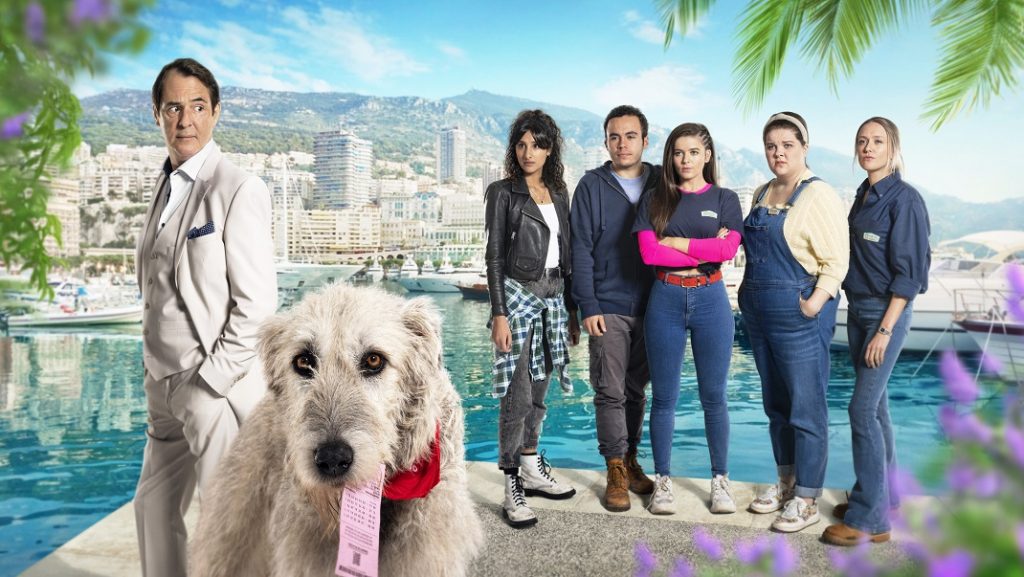
It’s interesting you’ve worked on film, short film, commercials, how does the amount time you’ve got to work with reflect how you compose, because you are working with kind of time constraints and you’re having to tell a story with in different periods of time almost through music?
Every single project within this, I call it the pandemic year (laughs) right, the pandemic year has been different, every single one is different, and you know what? I like that. I really like it. But also as well Claire I like kind of working with the pressure, I think I compose better under pressure. And a lot of people don’t Claire, a lot of people like to sit back going in another room, take a guitar on top of the moors and stuff like that and reflect and stuff, which is totally fine. I’ve had a lot of time pressure, under this stuff like you can tell with The Syndicate. The short film Altar another experience within writing, like straight away. I’m very impulsive, some people are not. I hold my hands up, I’m very impulsive, and it’s one of those things that I have learned so much within composing you’ve gotta kind of, it’s alright jumping in, but you’ve also gotta take two steps back and really think about things rather than just jumping in. And that’s the exact, it was one of the first mistakes I made with the film, and the director worked so close with me, he kinda pulled me up, he said. “Right Dood, listen, have a bit more of a think about this, before you jump straight in.” ‘cause first of all I jumped straight in on the first draft, I went straight in, I did the eight minutes, nine minutes, it took me two days, I give it to him and he went, “Right, ok some of this stuff is really good and some of this stuff is absolutely crap, you know what I mean, we need to kinda go back to the drawing board here and think of it, and break stuff down.” And I learned so much from Christian Rose, the director and the support he gave me was unbelievable. And then the Japanese commercial that was like a different ball game because I submitted a piano piece which was then put onto the visual, does that make sense? Compared to the short film where I was writing to picture which I love, it’s incredible. So there was timings and everything like that, but the commercial was kind of like, just slot in as a sync. And there was like one change I think. But going back to the Japanese commercial that song, I think I submitted three, again three were absolutely rubbish (laughs). And then one just came through, you never expect that the one that they like is the one, does that make sense? It’s like I can’t believe you’ve chosen that one, but yeah that’s what happened. But the same with The Syndicate Claire I think there were six pitches for that. Again I didn’t write to picture on that I submitted songs for that. Everything is different and I like that, it keeps you on your toes, it’s important, it’s cool.
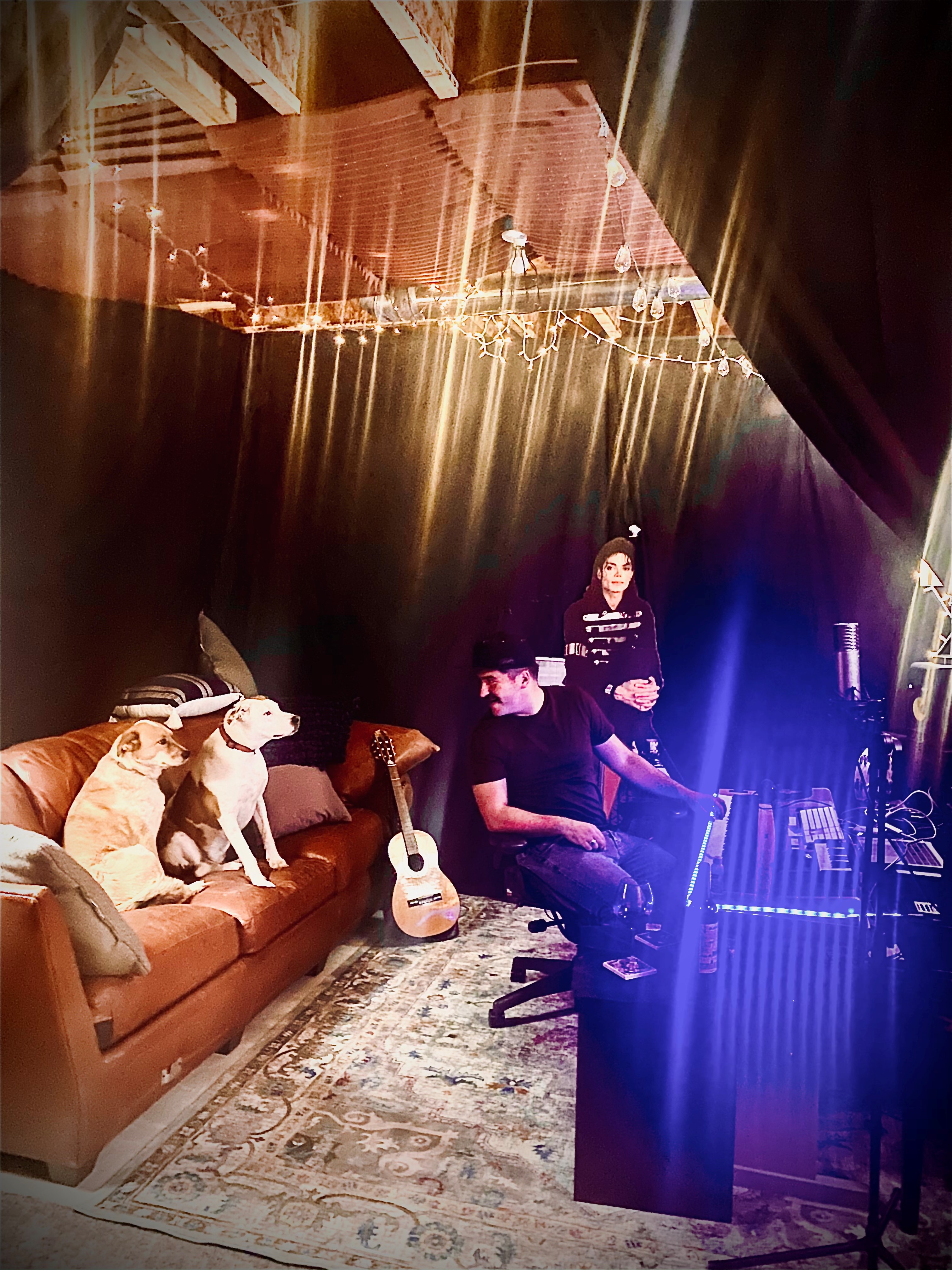
It’s interesting because in this instance, Kay isn’t just the writer of The Syndicate she is one of the directors as well of the show, so are they giving you any kind of direction saying this is the kind of thing I’m looking for, and then you just roll with it? Or do you see the script? You get the idea of what the story is about and then go away and start to think about what you are composing and how again this emotional journey this music going to take us on.
It’s a bit of everything to be honest, I think you’ve nailed it, it’s a bit of everything. So for example first, second episode I got given the story line, I didn’t really get given the script, I worked really closely with the editor, Lindsey has been amazing. And I think I worked more closely with her than Kay to be honest. So she was very supportive, very honest in stuff, if something didn’t work she went, “Nah this is rubbish get away.” You know what I mean, let’s move on, let’s not dwell on stuff. But as well as that, I pitched a lot of stuff as well, so bringing other artists in, I pitched Scars on 45 for them on episode 4. Another artist from England called Andy Ruddy, he featured on the last episode as well. So it’s great having that involvement with other musicians to get in the show, I think it’s huge. This season has gone down so well, like everything else what Kay does, you know what I mean. It’s incredible what she’s done and she’s gonna continue to do it. She is so successful and the good thing now and I’ve been obviously been chatting with the team, but even in interviews she’s mentioned she is now growing new talent, so these new writers coming through and that’s incredible so she’s passing it down, but really building stuff and teaching. It’s amazing.
And you mentioned working closely with the editor, but also you have sound designers, folly. Do you work with anybody like that as well? Or is that all dealt with editors, directors and they just negotiate between the pair of you? As I’m thinking sound design and score have to work together in tandem?
That’s a good question, I mean let’s use The Syndicate as an example, I worked so close with Lyndsey the editor she’s been great but very specifically on the theme song because they wanted dog, money, gambling I was thinking what we gonna do? I don’t know if people knew this, the actual dog bark is my dog Duke, which is
“I think even working with the renowned Kay Mellor is such a privilege.”
is co-incidentally the main character’s dog on the show is Duke. It’s like this is weird, this has to work. So yeah so obviously, he (Duke) has this sort of barking fit at 3 o’clock everyday so I just put a microphone outside and just captured him barking, it was like was like 10 seconds and I put it in there at the beginning and the end of the theme song. I think that was the closest thing to sound design. I didn’t really work with anyone within the sound design team, no.
And are you mindful as well when you’re writing a piece of music or a score specifically that music helps take us on the emotional journey of the film and evoke emotion. Do you as a composer have to be careful to not lead the audience’s emotion, but instead provide enough to take us there but also allow the audience to find their own emotion as well?
It does make sense and there’s two things there you kinda touched on. Going back to the short film, the prime example of that Christian the director said to me, “You’ve got to make the audience feel uncomfortable.” Cos it’s a horror and I’ve never done horror, I’m thinking what am I going to do here? And I went the more ambient approach and then dramatic which is more easy for me to do especially being a piano player. And he went, “No, it has to be uncomfortable, but at the same time you are composing music.” Which is a really difficult description, so that is one example. But also do you know what, even from a live aspect, I think it is such an incredible thing and I still find it and I don’t know how it’s done now. But you know when a musician is on stage? And you can connect with an audience member, just by something you are doing from stage, you can create an emotion, if it is someone breaking down crying or cheering or singing along, and I always notice obviously with a live background we’ve got with the band, there is an imaginary line between the audience and stage and you create that channel. And that’s the same even when you’re composing as well you are creating that feeling, you’re creating that emotion, where’s this film gonna go? Where’s this song gonna go? And you’re connecting with someone you don’t even know. It’s incredible, it’s incredible. It’s really incredible.
And I suppose what for you is the power of music? Why does it have the power to evoke emotion and transport us?
You know I live in house with three girls, two being 14 year old twins ok, and we had this discussion over dinner, I think it was about a week ago and I said, ‘How often do you think that we listen to music in this house?’ And they all said, “Every single day.” I said, “Let’s be more specific now: time frame?” You see you have to remember music is everywhere. Like in a house you’ve got Alexas, you’ve got laptops, phones, everything, you’re in the shower, everything and it’s such a powerful thing. I think I have listened to music every single day of my life, and that’s not just playing it and being creative. It’s radios, TV, music is life, it’s part of my life, it’s probably part of your life as well, it’s such a huge connectivity of an emotional stance, it’s everywhere and I think it’s a big part of people’s lives and stuff, but I think like you said it does change, it can change your persona if you’re having a bad day, a good day. It puts you in that mood set, it relaxes you, it’s a powerful thing, it’s huge. And I think going back to the film composition as well. I remember getting the film for the first time, and it were just the surrealist thing ever, because there were nothing, it was just like silence apart from the dialogue and everything like that and in my head I’m thinking how am I gonna make this into something that is going to evolve into something that is going to work? It’s a huge challenge, huge challenge, but I love it.
And I suppose finally can I ask if you could go back a decade or so and tell your younger self and advise yourself of the future or somebody else who wants to go into the industry and write film scores and would-be composers, what would it be?
You are only as good as your last piece of work, remember that. And I think that goes for everything, and I’m still learning now and I’m always going to be learning, everyone is learning, no one is perfect. But also don’t be put in that corner, don’t be put in a box, don’t let anyone put you down, you become stronger. We had so many people within the band and even now, and even when I was younger as well, whether it’s through school or college and stuff. ‘What you doing that for? What you doing that for?’ You can do anything you want, if you put your mind to it you can do anything you want. And I think having that ambition, have the drive, have the focus and have the belief in yourself and just keep on going, keep on going. Especially now as well Claire there are so many ways you can contact people and get your work out there. YouTube, Tiktok, everything, it’s incredible. If you’ve got that talent, you’ve got that creativity, you’ve got that drive, go and do it, no one is gonna stop you. So just have that belief, push yourself as much as you can and if you want something you’ll get it.
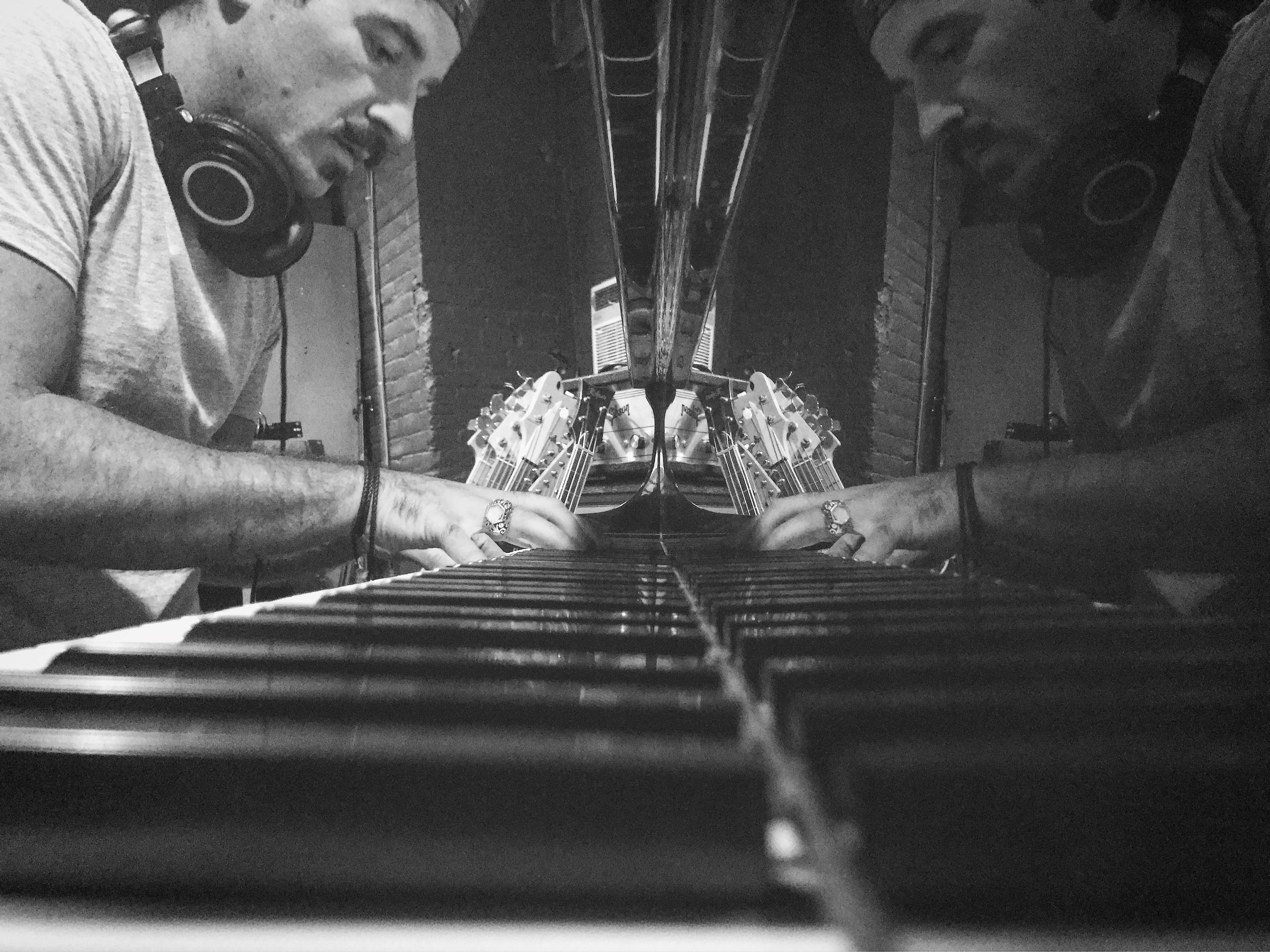
The Syndicate available via the BBC iPlayer in the UK and BritBox in the USA
Connect with David
Claire Bueno
Claire Bueno is a film journalist, presenter and interviewer, having moderated BAFTA, Royal Television Society (RTS), Women in Film and Television (WFTV), and Apple Store Q&As and hosted Comic Con panel talks. Claire is the founder of Premiere Scene Magazine and has had the privilege of interviewing esteemed artists including Tom Cruise, George Clooney, Brad Pitt, Sir Anthony Hopkins, Sigourney Weaver, Emily Blunt, Samuel L Jackson, James Cameron and Andy Serkis.
As a media coach Claire works with leading personal publicists, HBO, Netflix, Sky, ITV, Penguin Random House, the BFI, DDA, MacMillan and Premier, offering practical coaching sessions and safe environment for talent to perfect their interview technique before facing the press. She has extensive experience working with emerging and seasoned professionals and where English is not their first language.
Additionally, Claire is the producer of the critically acclaimed feature documentary CLEANIN’ UP THE TOWN: Remembering Ghostbusters and the upcoming TOO HOT TO HANDLE: Remembering Ghostbusters II.